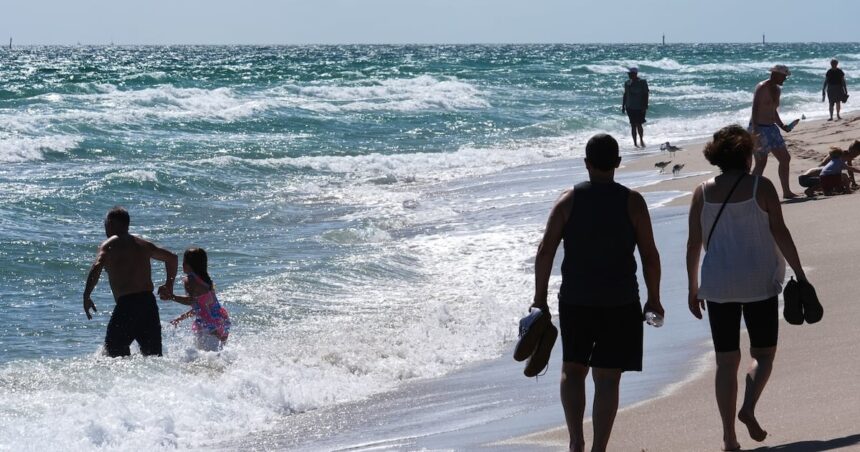As Canadian temperatures plummet each winter, the annual migration of “snowbirds” to warmer American destinations has become a cherished tradition for thousands of retirees. Now, a newly proposed bipartisan bill in the U.S. Congress could significantly extend their stay in the sun-soaked states, potentially transforming the seasonal lifestyle of Canadian winter escapees.
The Canadian Snowbird Visa Act, introduced last week by Representatives Maria Elvira Salazar (R-Florida) and Debbie Wasserman Schultz (D-Florida), would allow eligible Canadian citizens aged 50 and older to remain in the United States for up to eight months annually—a substantial increase from the current six-month limit.
“This legislation recognizes the profound economic impact Canadian visitors have on our tourism-dependent economies,” Salazar stated during the bill’s introduction. “Florida alone welcomes nearly 3.5 million Canadian visitors annually, contributing over $4 billion to our state economy.”
The proposed legislation comes with specific eligibility requirements. Applicants must own or rent a residence in the U.S., purchase travel medical insurance, and pass background checks. The bill strictly prohibits snowbirds from accessing public benefits or seeking employment during their extended stays.
Evan Rachkovsky, spokesperson for the Canadian Snowbird Association, called the bill “a game-changer for our 115,000 members.”
“This responds to our members’ most consistent request—more time to enjoy their winter residences without violating immigration rules,” Rachkovsky told CO24 News. “Many snowbirds have invested significantly in U.S. properties but face strict limits on enjoying those investments.”
The economic implications extend beyond Florida. According to analysis from the CO24 Business research team, Arizona, California, and Texas—all popular snowbird destinations—could see combined economic benefits exceeding $2.7 billion annually if the legislation passes.
The proposal isn’t without potential complications for Canadians, however. Provincial health coverage regulations typically require physical presence within the province for at least six months annually to maintain eligibility. Canadians staying longer in the U.S. could potentially jeopardize their healthcare coverage back home.
Tax implications also present concerns. While the Canada-U.S. Tax Treaty provides protection against double taxation, snowbirds exceeding 183 days in the U.S. might face complex tax filing requirements in both countries.
Marvin Johnson, a retired teacher from Ontario who winters in Naples, Florida, expressed enthusiasm tempered with practical considerations: “My wife and I would love staying through April when Ontario is still freezing, but we’re concerned about our health coverage and tax status. The details will matter enormously.”
The bill has been referred to the House Judiciary Committee, where it faces an uncertain timeline amid a contentious election year. Similar proposals in previous years gained initial support but failed to advance to final votes.
Tourism officials across southern states have voiced strong support. The Florida Restaurant and Lodging Association estimates the extended visits could increase off-season occupancy rates by up to 12% in coastal communities heavily dependent on seasonal tourism.
For Canada News readers monitoring the situation, Canadian diplomats in Washington confirm they’re tracking the legislation but emphasize it remains in early stages. The Canadian Embassy declined to take an official position but acknowledged the importance of cross-border movement to bilateral relations.
As this legislative process unfolds, the question remains: will this potential policy shift fundamentally alter the decades-old rhythm of Canadian seasonal migration, or simply formalize what many snowbirds have quietly sought to do through creative travel planning?


















